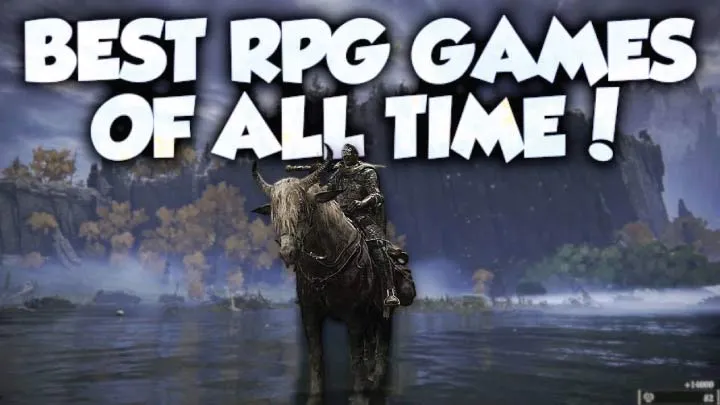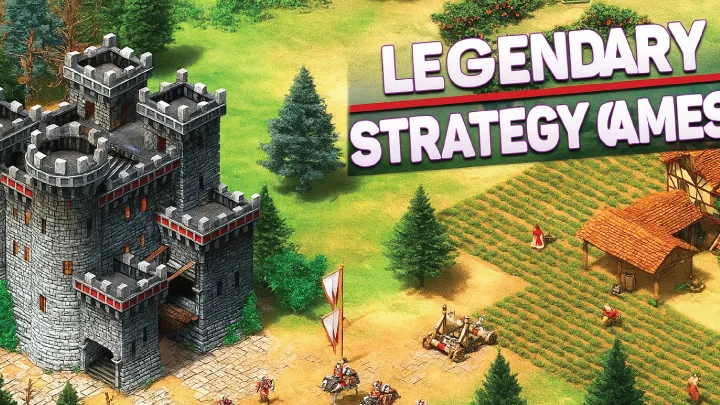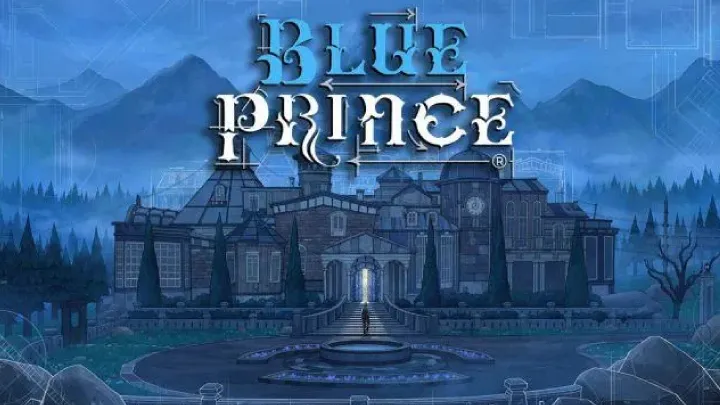Puzzle games have always held a special place in gaming history. They challenge our perception, test our reasoning, and reward creativity over chaos. While many genres depend on reflexes or storytelling, puzzle games succeed through intellect and design brilliance. From minimalist visual experiments to elaborate world-building enigmas, these titles twist your brain and reshape the way you think. Below, we dive deep into the top mind-bending puzzle games you absolutely must try — each one a masterpiece that proves mental challenge can be the most satisfying form of play.
1. The Witness – A World Built on Perception
Jonathan Blow’s The Witness redefined what a puzzle game could be. Set on a mysterious, deserted island filled with colorful landscapes, this game invites players to solve hundreds of line-based puzzles. Yet, these puzzles are far from repetitive; they evolve as the player learns new rules, never through direct instruction but by observation and intuition.
The Philosophy of Discovery
Instead of dialogue or narration, The Witness teaches you its language organically. Every puzzle panel communicates visually — lines, colors, symbols — forcing players to understand patterns by trial, error, and enlightenment. The result is a meditative journey where progress feels like genuine intellectual discovery.
The Art of Silence
The island itself becomes the teacher. Every tree, shadow, and reflection hints at hidden paths and invisible rules. There’s no soundtrack, only ambient sounds of nature, creating a tranquil environment that amplifies the beauty of understanding.
2. Portal 2 – Science, Sarcasm, and Spatial Logic
Valve’s Portal 2 isn’t just a sequel; it’s an evolution. Building upon the original’s concept of shooting portals to solve spatial puzzles, Portal 2 expands the formula with narrative depth, mechanical diversity, and unforgettable humor.
GLaDOS and the Puzzle of Personality
Unlike many puzzle games, Portal 2 pairs mental challenges with witty dialogue. The AI antagonist GLaDOS, voiced by Ellen McLain, and the bumbling Wheatley, voiced by Stephen Merchant, inject life and comedy into every chamber. Their personalities keep the player engaged even as puzzles grow devilishly complex.
Engineering Brilliance
The addition of gels — Repulsion, Propulsion, and Conversion — introduces new physics-based logic. These substances alter surfaces, allowing for creative solutions that make players feel both clever and powerful. By the end, Portal 2 feels less like a game and more like a masterclass in design and writing harmony.
3. Baba Is You – Language as Logic
Baba Is You is a tiny indie miracle that rewrites what puzzles can be. The entire world operates on words — literally. Each level’s rules are written as blocks on-screen: “BABA IS YOU,” “WALL IS STOP,” “FLAG IS WIN.” Move the words around, and you rewrite reality.
Breaking the Rules
Every stage is a mind-bending experiment in logic and linguistics. Players must think like a programmer, restructuring how the game defines objects and interactions. A single word shift can turn walls into goals or turn the player into the obstacle.
Endless Possibilities
The beauty of Baba Is You lies in its unpredictability. There’s no single logic; the game’s entire framework is open-ended. It invites lateral thinking, rewarding those who dare to bend reality — a perfect metaphor for what puzzle games can inspire.
4. Inside – The Puzzle of Emotion
Playdead’s Inside blurs the line between art and game. Following in the footsteps of Limbo, it presents a dark, oppressive world where every environmental puzzle serves the narrative. Without a single line of dialogue, Inside tells a story of control, fear, and resistance.
Environmental Storytelling
Every obstacle feels like part of a haunting fable. You solve not to progress mechanically but emotionally — each success reveals more of a disturbing yet beautiful world. The muted visuals and eerie soundtrack elevate tension, making every discovery feel profound.
The Ending that Broke the Internet
The final act is one of gaming’s most talked-about sequences, transforming the player’s role and forcing them to question everything. It’s not just a puzzle game; it’s an existential experience.
5. The Talos Principle – Logic Meets Philosophy
Croteam’s The Talos Principle blends traditional logic puzzles with deep philosophical narrative. You play as a sentient android in a simulation filled with ancient ruins, laser puzzles, and cryptic messages left by unseen creators.
Puzzles of Light and Thought
Each puzzle revolves around manipulating energy beams, connectors, and switches. However, beneath the mechanical challenge lies profound philosophical questioning: What does it mean to exist? What defines intelligence or freedom?
A Game That Makes You Reflect
As you progress, the game asks you to make moral and intellectual choices. Do you obey your creator’s voice, or do you rebel to seek truth? Few puzzle games manage to intertwine gameplay and narrative this elegantly.
6. Monument Valley – Beauty in Simplicity
Ustwo Games’ Monument Valley transforms geometry into poetry. Guiding the silent princess Ida through impossible architecture, players rotate structures to reveal new paths — like navigating a living M.C. Escher painting.
Art as Gameplay
Each level is a minimalist masterpiece, designed with pastel hues and serene music. The illusion-based puzzles challenge spatial reasoning while soothing the senses, making Monument Valley both meditative and captivating.
Expanding the Illusion
Its sequel, Monument Valley 2, builds upon the emotional aspect, focusing on motherhood and connection. Together, they represent puzzle design as visual storytelling — proof that complexity can live within simplicity.
7. Human: Fall Flat – Chaos as Creativity
At first glance, Human: Fall Flat seems more comedic than cerebral. Its physics-driven puzzles involve controlling a floppy, ragdoll-like character to solve environmental challenges. But beneath the silliness lies surprising depth.
The Power of Physics
Each puzzle depends on how well players manipulate objects and momentum. There’s no “correct” solution; every success feels improvised, often hilarious, and strangely satisfying. The unpredictability encourages teamwork in co-op play, adding chaos to cognition.
Laugh, Fail, Learn
What sets Human: Fall Flat apart is its humor. Failure isn’t punished — it’s celebrated. The game turns clumsiness into creativity, teaching that sometimes, thinking differently (or accidentally) leads to brilliance.
8. Viewfinder – Reality Rewritten Through Photography
Viewfinder is one of the most innovative puzzle games in recent years. It allows players to take photos of the world and place them back into reality, altering space itself. Place a picture of a bridge, and suddenly the bridge exists in the environment.
Puzzles as Perspective
This mechanic transforms perception into the ultimate tool. Players must think dimensionally — where and how an image overlays reality becomes the key to progress. Every puzzle feels like visual magic.
An Artistic Achievement
Beyond mechanics, Viewfinder explores themes of creativity, memory, and how we construct meaning from images. It’s both visually mesmerizing and intellectually stimulating — a true modern marvel of design.
9. The Room Series – Mystery in Miniature
Fireproof Games’ The Room series delivers tactile puzzle perfection. Each entry centers on intricate puzzle boxes filled with secrets, hidden mechanisms, and cryptic notes. Every twist and click feels authentic, as if you’re physically manipulating real objects.
Tactile Immersion
Unlike many digital puzzles, The Room relies on physical interaction — sliding panels, rotating gears, uncovering hidden compartments. The combination of realistic textures and atmospheric lighting makes it deeply immersive.
Expanding the Mystery
As the series progresses, the narrative expands into cosmic horror and alternate dimensions. What begins as mechanical curiosity evolves into a Lovecraftian tale of discovery and obsession. It’s puzzle-solving with storytelling elegance.
10. The Swapper – Identity and Isolation
The Swapper is a haunting sci-fi puzzle game that uses cloning as its central mechanic. Players control an astronaut equipped with a device that can create copies of themselves and swap consciousness between them to navigate levels.
The Puzzle of the Self
Mechanically, the game challenges players to coordinate multiple versions of their body to progress. Philosophically, it asks: if consciousness can transfer freely, what defines the original self?
A Somber Masterpiece
The game’s eerie atmosphere, clay-like visuals, and ambient score combine to create an introspective experience. It’s less about reaching the end and more about confronting what it means to exist.
The Art of the Mind-Bender: Why These Games Matter
Mind-bending puzzle games go beyond entertainment — they expand our way of thinking. They challenge not just logic but emotion, perception, and philosophy. Whether through language manipulation in Baba Is You, surreal architecture in Monument Valley, or self-reflection in The Talos Principle, each title invites players to see the world differently.
Patterns of Genius
Across these games, a pattern emerges: elegant mechanics, minimalist instruction, and profound insight. The joy comes not from being told the answer but from discovering it yourself.
Mental Exercise, Emotional Reward
Puzzle games prove that difficulty doesn’t have to be frustrating. Done right, it’s fulfilling — a mental workout with a creative soul.
Conclusion – The Joy of Thinking Differently
The greatest puzzle games share one truth: they transform curiosity into revelation. They turn confusion into clarity, frustration into triumph. Whether you’re deciphering strange symbols in The Witness or twisting physics in Portal 2, each victory feels earned because it springs from your own understanding.
In an industry dominated by fast-paced action and instant gratification, these mind-bending puzzles remind us of the beauty of patience and the power of thought. So, if you’re ready to stretch your mind, lose yourself in mystery, and rediscover the thrill of discovery — these are the puzzle games you must try.

















